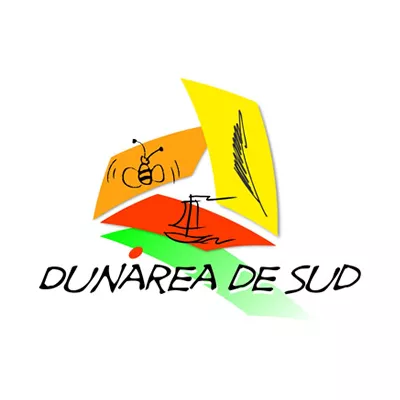General information
RDP Priority
- P6. Social inclusion and local development
RDP Focus Area
- 6A: Diversification & job creation
RDP Measure
- M06: Farm & business development
Summary
The project involved the construction of a guesthouse based on the local architecture of the Jurilovca village, located in the Biosphere Reserve of the Danube Delta. The guesthouse was fitted and decorated according to the traditional style of the area and guests are invited to participate in cultural heritage activities and celebrations.
Results
The guesthouse was 80% booked during the first calendar year after opening (September 2021) and fully booked during peak season and special events.
As well as providing work for local builders and craftspeople, the construction of the guesthouse has created a combination of permanent (four jobs) and seasonal jobs for local people.

Promoter
S.C. Melicom S.R.L.
Funding
Total budget 264 145.00 (EUR)
EAFRD 170 000.00 (EUR)
National/Regional 30 000.00 (EUR)
Private 64 145.00 (EUR)
Resources
Documents
Guesthouse ‘Cuplu Călător’ – Hospitality in Jurilovca
(PDF – 583.67 KB)
Context
Traditional Romanian villages are being slowly abandoned. In the Danube Delta area, this phenomenon is largely due to the remoteness of the area, the loss of traditional craftsmen and trades, a lack of basic facilities, an ageing of the population, and the outmigration of young people. The Danube Delta – especially the Biosphere Reserve, where the village Jurilovca is located – is the largest wetland in Europe. Jurilovca has the largest community of fishermen in the Danube and is a centre for collecting and processing fish. It is also a cultural heritage attraction, being home to a significant population of Lipovan Russians, whose architecture and decorative crafts are of special interest. In this context, sustainable tourism is seen as a potential driver for the economic and social redevelopment of the area.
The beneficiaries, Claudia and Marius Potolea, left their business careers behind to travel around Romania. Four months later (following 6 000 km of hitchhiking, and almost 2 000 km on foot to visit each of the 41 counties of the country), they headed to Asia, crossing Bulgaria, Turkey, Georgia, Armenia, Iran, India, Malaysia, Singapore, Thailand, Myanmar, and Hong Kong. Along the way, they met local people and discovered traditions, cultures, and stories, all of which inspired them to create their own sustainable tourism business on their return to Dobrogea (Claudia's native village). The ‘Cuplu Călător’ (Travelling Couple) guesthouse fulfils the couple’s dream of hosting travellers and promoting cultural exchange.
Objectives
The aim of this project was to enhance the region’s tourism offer by constructing a guesthouse according to local architectural traditions and creating employment opportunities for the local community.
Activities
- Conducted marketing and business feasibility studies as well as ongoing project management.
- Hired local specialists and craftsmen and purchased local construction materials from Jurilovca, as well as modern equipment from Tulcea.
- Designed and built the eight-room guesthouse.
- Purchased and installed the necessary fittings and equipment.
- Registered the guesthouse within the region’s agrotourism directory, which allowed it to be integrated into the tourist events calendar of the Delta Danube.
In addition to hiring local staff and using local produce for the running of their business, the beneficiaries were committed from the outset to drawing on the traditional skills of local craftsmen who understood the value and architectural history of the area. The ‘Cuplu Călător’ guesthouse was constructed with a traditional reed roof, white plaster exterior coating and decorative wooden beams painted in bright deltaic blue same as all traditional Lipovan houses. The exterior was enriched with pediments, guardrails and balustrades adorned with openwork lace wood patterns of floral motifs, and the plinth, alleys, and sidewalk are made from locally quarried stone. Each of the eight rooms has a balcony and its own local nature/heritage theme. The work was completed in September 2021.
Main results
Considering that the average occupancy of the guesthouse is 80% over the entire calendar year, with 100% occupancy during the peak tourist season and special events, it can be said that ‘Cuplu Călător’ makes a positive contribution to Jurilovca’s tourism offer. Guests appreciate the authentic appeal of the guesthouse and its unique location in the Danube Delta.
Multiple builders and traditional craftspeople were engaged in the construction of the guesthouse and four permanent jobs (running the guesthouse) were created for local people in Jurilovca. During busy periods, Claudia and Marius hire seasonal staff from the area to provide additional operational support.
Key lessons
Working in tourism and hospitality requires a valuable and unique set of skills: how to prioritise tasks, organise your time, and engage with various kinds of people. For Claudia and Marius, the experience of establishing the ‘Cuplu Călător’ guesthouse in Jurilovca has been all about gathering local stories, establishing connections with tourists, and building trust. Their success is due to their deep connection to the local community and their love for the Delta’s natural and cultural heritage.
"Jurilovca has the potential to become the tourist centre of Dobrogea for guests looking for new experiences. Three things convinced us: the perfect location to offer tourists experiences in Dobrogea; the hospitable community with many traditions, gastronomy, and unique things to offer; local administration with vision, results, and investment projects."
Claudia & Marius Potolea, project promoters
